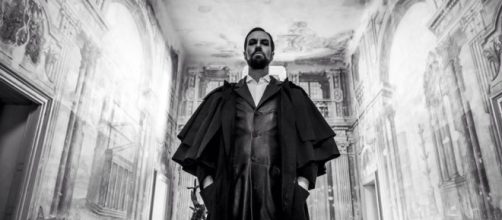Italian basso profondo Andrea Mastroni made a triumphant debut at the Metropolitan Opera Friday, Jan. 20, as the hired assassin Sparafucile in Giuseppe Verdi’s ‘Rigoletto,’ a role the 38-year-old has already sung some 300 times worldwide. In an exclusive interview, the bass gave Blasting News his take on the audience’s response on debut night. The talented singer also told of his recently-released music video of a masterpiece from German art song repertoire: franz schubert’s “Erlkönig” (King of Elves).
‘If I may say so myself’
Judging by the crowd’s response, “my debut was a resounding success.
I was very pleased with the enthusiastic applause I received that night and love performing for the New York public.” And press reviews seem to uphold his perception. Eric C. Simpson of New York Classical Review called Andrea Mastroni’s debut “superb,” his voice “a rich barolo” (a full-bodied red Italian wine from the Barolo region of Piedmont).
Cosmopolitan man
Born in Venice, Andrea Mastroni’s adoptive hometown is Milan, in northern Italy. For the interview he spoke in perfect, fluent Spanish, a language he has mastered from frequent stage work in Spain. Yet his English is quite good too. His every-ready laugh lightened the gravitas of his echoing voice, which is so deep it could traverse the earth’s core and reach China.
His career has taken him all over the world, so his Met Opera debut on Jan. 20 seems somehow belated.
Urbane roles
Andrea Mastroni has interpreted various title roles in operas of Giuseppe Verdi (Falstaff), Wolfgang Amadeus Mozart (Figaro, Don Giovanni) and Gaetano Donizetti (Don Pasquale). He includes neglected works in his repertory, like Conte Robinson in Domenico Cimarosa’s ‘Il matrimonio segreto’ and Baldassarre in Filippo Marchetti’s ‘Romeo e Giulietta.’
Modern works
The busy bass also performs Kurt Weill’s ‘Die sieben Todensünden’ (The Seven Deadly Sins), Antonín Dvořák’s ‘Stabat mater’ and contemporary works including Angelo Francesco Lavagnino’s ‘Messa Chigiana,’ Roberto Hazon’s ‘Requiem,’ Angelo Bellisario’s ‘Signora di Monza’ and Andrea Arnaboldi’s ‘Dante racconta l’inferno’ (Dante Reports on Hell).
German art songs
“But,” says Andrea Mastroni, “German lieder [art songs] are near and dear to my heart.” Central to his recital repertoire are song cycles: Robert Schumann’s ‘Dichterliebe’ (Love Poetry) and Franz Schubert’s ‘Die schöne Müllerin’ (The Miller’s Beautiful Daughter) and ‘Winterreise’ (Winter’s Journey). “Franz Schubert,” he continues, “was a masterful composer of lied, from the age of 18, when he published what for me is one of the greatest art songs ever, ‘Erlkönig’ (King of Elves). It’s like a four-minute opera, as it requires the singer to adopt four distinct voices in its performance: that of the narrator, the father, the son and the Elf King.”
Gothic look
Director Nicola Garzetti and Andrea Mastroni created a five-minute music video of “Erlkönig." The bass sings all four roles and impersonates—in costumes (by Vincenza Aurilio)—all but the son, who is mimed by actor Salvatore Aversano.
At the piano Mattia Ometto plays the quasi-hypnotic, stirringly dramatic score. With a gothic setting and Mastroni dressed and made up quite the ghoulish figure, if the work has a pop music-video feel, that is on purpose.
Schubert for everyone
Andrea Mastroni says, “The music video was an experiment, and we are really happy with it.” So successful experiment equals … further Schubert lieder music-videos? “I chose to be a singer because of Schubert’s music. His masterpieces—already widely performed—deserve to be accessible to and understood by everyone.” Sounds promising. Perhaps the format will stir passion for German lieder in today’s youth. Who knows? Perhaps 18-year-olds worldwide will compose their own masterpieces.
Saturday, Feb. 4, is Andrea Mastroni’s final performance in “Rigoletto” at the Met—for now, we hope. Something says we haven’t seen the last of him by a long shot.

